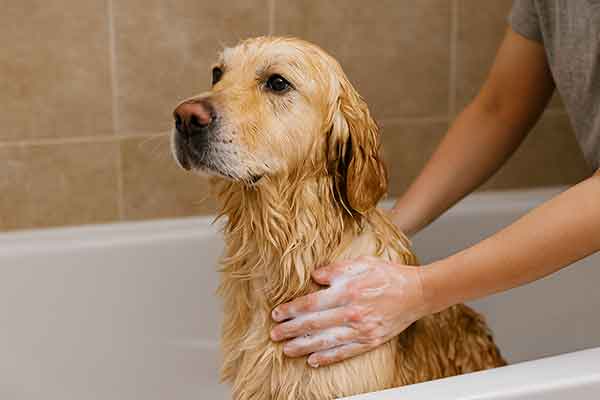How to Treat Dog Allergies? Symptoms, Causes & Effective Solutions
Just like humans, dogs can suffer from allergies too. These allergic reactions can cause itching, discomfort, digestive issues, or even chronic infections. If you’re wondering how to treat dog allergies, you’re not alone. Whether your dog has food allergies, environmental sensitivities, or reactions to fleas, knowing how to identify and manage these issues is key to helping your furry friend feel better.
Table of Contents
- What Are Dog Allergies?
- Common Symptoms of Dog Allergies
- Types of Dog Allergies
- How Dog Allergies Are Diagnosed
- How to Treat Dog Allergies
- Home Remedies and Natural Treatments
- Tips to Prevent Future Allergies
- FAQ
- Conclusion
What Are Dog Allergies?
Dog allergies occur when a dog’s immune system overreacts to substances that are typically harmless. These substances—known as allergens—can include ingredients in food, pollen, dust mites, mold, or flea saliva. The reaction can be mild or severe and may involve the skin, digestive system, or respiratory tract.
Common Symptoms of Dog Allergies
Allergic reactions in dogs can appear in various forms. The most common symptoms include:
- Excessive itching or scratching
- Red, inflamed, or flaky skin
- Chronic ear infections
- Hair loss or bald patches
- Frequent licking or chewing of paws
- Runny eyes or sneezing
- Vomiting or diarrhea (especially in food allergies)
Recognizing these signs early can help you manage the allergy before it escalates.
Types of Dog Allergies
Understanding the source of your dog’s allergy is crucial for treatment. Here are the main types:
1. Food Allergies
Often caused by proteins like beef, chicken, or dairy. Dogs with food allergies may show signs like itchy skin, ear infections, or gastrointestinal upset.
2. Environmental Allergies (Atopy)
Triggered by allergens such as pollen, mold, dust mites, or grasses. Symptoms often include skin irritation, paw licking, and sneezing—often seasonal.
3. Flea Allergy Dermatitis (FAD)
Dogs allergic to flea saliva can develop severe itching and skin infections even from a single bite. Preventive flea treatment is essential in these cases.
4. Contact Allergies
Caused by direct contact with irritants like certain shampoos, fabrics, or cleaning agents. Usually limited to the area of contact.
How Dog Allergies Are Diagnosed
To treat dog allergies effectively, proper diagnosis is key. Your veterinarian may use the following steps:
- Physical examination and review of your dog’s medical history
- Elimination diet to test for food allergies
- Intradermal skin testing or blood testing for environmental allergens
- Flea combing and skin scrapings to rule out parasites or infections
It’s best not to self-diagnose, as the symptoms of dog allergies can mimic other conditions like mange or yeast infections.

How to Treat Dog Allergies
Treatment depends on the type of allergy and severity. Here are the most common vet-recommended treatments:
1. Antihistamines
Over-the-counter antihistamines like Benadryl (diphenhydramine) may help relieve mild itching. Always consult your vet for proper dosage.
2. Corticosteroids
Prescribed for more severe allergic reactions. They reduce inflammation but are generally not suitable for long-term use due to side effects.
3. Allergy Shots (Immunotherapy)
Used for long-term management of environmental allergies. These involve injecting small amounts of allergens to build tolerance over time.
4. Medicated Shampoos
Special shampoos can soothe inflamed skin, remove allergens from the coat, and reduce itchiness.
5. Prescription Medications
Drugs like Apoquel or Cytopoint are designed specifically for treating atopic dermatitis and chronic allergies in dogs.
6. Flea Control
Topical treatments, oral medications, and environmental control are essential for dogs with flea allergies.
Home Remedies and Natural Treatments
If your dog has mild allergies, some natural approaches may provide relief:
- Oatmeal baths: Soothe irritated skin and reduce itching.
- Coconut oil: Applied topically or added to food, it may help improve skin health.
- Omega-3 supplements: Fish oil helps reduce inflammation and improve coat condition.
- Apple cider vinegar spray: Diluted with water, it can reduce itchiness (avoid open wounds).
Always check with your vet before introducing home remedies, especially if your dog is on medication.
Tips to Prevent Future Allergies
While not all allergies can be prevented, the following tips can help minimize flare-ups:
- Feed a limited-ingredient or hypoallergenic diet if your dog has food sensitivities.
- Use flea preventives consistently.
- Wipe your dog’s paws and belly after outdoor walks to remove pollen or allergens.
- Bathe your dog regularly with hypoallergenic or medicated shampoos.
- Keep your home clean—vacuum frequently and use air purifiers to reduce allergens.
FAQ
What is the best treatment for dog allergies?
The best treatment depends on the allergy type. Antihistamines work for mild symptoms, while immunotherapy or prescription meds may be needed for chronic issues. Always consult a vet for tailored advice.
Can I treat my dog’s allergies at home?
Yes, mild cases can sometimes be managed with natural remedies, diet changes, or flea prevention. However, vet diagnosis is essential for proper treatment.
Are dog allergies lifelong?
In many cases, yes. Most allergies are managed rather than cured. Long-term strategies often include medication, environmental control, and diet adjustments.
How do I know if my dog has allergies or something else?
Allergy symptoms often overlap with other conditions. A vet can help distinguish allergies from infections, mites, or autoimmune disorders through testing.
Can allergies make my dog aggressive or anxious?
Chronic discomfort from allergies can impact behavior. Dogs may become irritable or anxious due to constant itching or pain. Relieving the symptoms can improve mood and quality of life.
Conclusion
Knowing how to treat dog allergies starts with recognizing the symptoms and understanding the root cause. Whether your dog suffers from food sensitivities, environmental triggers, or flea allergies, there are many effective ways to bring them relief. From vet-prescribed medications to natural home remedies, treatment should always be tailored to your dog’s specific needs. With the right care, you can help your pup live a comfortable, allergy-free life.

